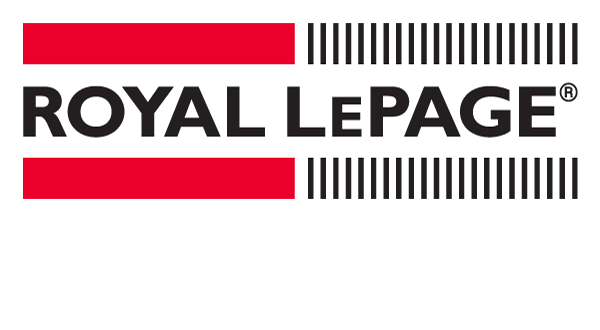
Buying a home is a monumental step, and starting your journey at the beginning of the year can set the stage for success. The housing market for 2025 is poised to offer unique opportunities and challenges, which means that home buyers need to prepare. We’ve got some actionable tips to help you confidently navigate the process and start the year on the right foot.
Assess Your Financial Readiness
Before diving into the home-buying process, evaluate your financial health. This step is the foundation of a smooth home purchase. Here’s how to get started:
Review Your Credit Score
Your credit score is a critical factor in securing favourable mortgage terms. In 2025, lenders are emphasizing creditworthiness more than ever. Obtain a free credit report and look for discrepancies or areas for improvement. Pay down debts, avoid late payments, and minimize new credit inquiries to boost your score.
Calculate Your Budget
Use a mortgage affordability calculator to determine how much house you can afford—factor in all potential expenses, including property taxes, homeowner’s insurance, and maintenance costs. Setting a clear budget early on will help you focus on homes within your price range.
Save for a Down Payment
While some loan programs allow for low down payments, aiming for 20% can help you avoid private mortgage insurance (PMI). Setting aside a fixed percentage of your monthly income or cutting discretionary spending will make a big difference in building your savings.
Research Market Trends
Evolving economic factors, interest rates, and housing inventory influence the real estate market in 2025. Being informed will empower you to make strategic decisions.
Understand Interest Rates: Mortgage interest rates are projected to remain stable but slightly higher than in previous years. Locking in a rate earlier than later can save you thousands over the life of your loan. Work with a lender to explore rate-lock options.
Track Local Market Trends: Each market is unique. Research housing trends in your desired area, such as average home prices, demand, and neighbourhood growth, to gain knowledge to help you identify when and where to buy.
Monitor Inventory Levels: Low housing inventory has been a persistent challenge, but 2025 may see an increase in new construction. Keep an eye on developments and open houses in neighbourhoods of interest.
Define Your Priorities
Before house hunting, make a list of must-haves and deal-breakers. Knowing what matters most to you will streamline the search process and prevent decision fatigue.
Consider Location: Location is paramount in real estate. Think about proximity to work, schools, public transportation, and amenities. Future development plans could affect property value; don’t overlook that.
Evaluate Home Features: Create a checklist of essential features, such as the number of bedrooms, layout, yard size, or energy efficiency. While compromise is often necessary, having clear priorities will help you stay focused.
Factor in Lifestyle Needs: Your new home should align with your current and future lifestyle. For example, prioritize homes with dedicated office space or strong internet connectivity if you plan to work remotely.
Partner with the Right Professionals
A knowledgeable team can make all the difference in your home-buying experience. Surround yourself with experts who understand your goals.
Hire a Real Estate Agent
Look for an agent with experience in your desired area. A good agent will advocate for your interests, negotiate on your behalf, and guide you through the complexities of the process. They’ll also be aware of what we’ve already mentioned: location needs, future development plans, and lifestyle considerations.
Consult a Mortgage Broker
A mortgage broker can help you find the best loan products and terms tailored to your financial situation. Compare offers from multiple lenders to secure the most favourable deal.
Work with a Home Inspector
A professional home inspection is non-negotiable. An inspector will identify potential issues and provide a detailed report, ensuring you’re aware of any hidden costs before committing.
Get Pre-Approved for a Mortgage
In competitive markets, a mortgage pre-approval letter can give you an edge. It demonstrates to sellers that you’re a serious buyer with the financial backing to close the deal.
Gather Documentation: Lenders will require proof of income, tax returns, bank statements, and credit history. Organize these documents in advance to expedite the process.
Compare Loan Options: Familiarize yourself with various mortgage options, including fixed-rate and adjustable-rate, and loans available to first-time home-buyers if applicable. Each has unique benefits depending on your financial profile.
Have a Plan for House-hunting
House hunting can be exciting yet overwhelming. Approach it with a clear plan to avoid common pitfalls.
Tour Homes Virtually and In-Person
Virtual tours have become standard in 2025, offering a convenient way to preview properties. However, in-person visits remain essential for assessing the property’s condition and neighbourhood.
Be Patient
Finding the right home takes time. Resist the urge to rush, as hasty decisions can lead to buyer’s remorse. Keep your goals and budget at the forefront of your search.
Negotiate Strategically
Work with your real estate agent to craft a competitive offer. In a seller’s market, consider waiving minor contingencies to make your bid more appealing, but always prioritize safeguards that protect your investment.
Prepare for Closing
Once your offer is accepted, the closing process begins. This stage involves finalizing the purchase and transferring ownership.
Conduct a Final Walkthrough: Schedule a walkthrough a few days before closing to ensure the property is in the agreed-upon condition. Address any issues immediately.
Understand Closing Costs: Closing costs typically range from 2-5% of the home’s purchase price. These include appraisal fees, title insurance, and escrow fees. Review your closing disclosure for transparency.
Secure Homeowners Insurance: Lenders require proof of insurance before closing. Compare quotes from multiple providers to find the best coverage at a reasonable rate.
Settle Into Your New Home
Congratulations—you’re a homeowner! Now, focus on making your new house a home.
Plan for Maintenance
Regular maintenance is key to preserving your property’s value. Create a checklist for seasonal tasks, such as HVAC servicing and gutter cleaning.
Establish an Emergency Fund
Unexpected repairs can arise, so reserve funds to cover these costs. Aim for at least 1-3% of your home’s value annually.
Connect with Your Community
Building relationships with neighbours can enhance your living experience. Attend local events, join community groups, and stay informed about neighbourhood developments.
Starting the year as a home-buyer in 2025 is an exciting opportunity to turn your dreams into reality. The journey may have its challenges, but with the right people in your corner and a solid plan, you’ll soon find yourself unlocking the door to your new home. Here’s to a successful start to the year and a bright future in your dream home! Reach out to a Benchmark Realtor for professional advice!
Contact a Fully-licensed Real Estate Agent
Looking for an experienced REALTOR® who specializes in real estate across Calgary? At Royal LePage® Benchmark we are here to help you.
